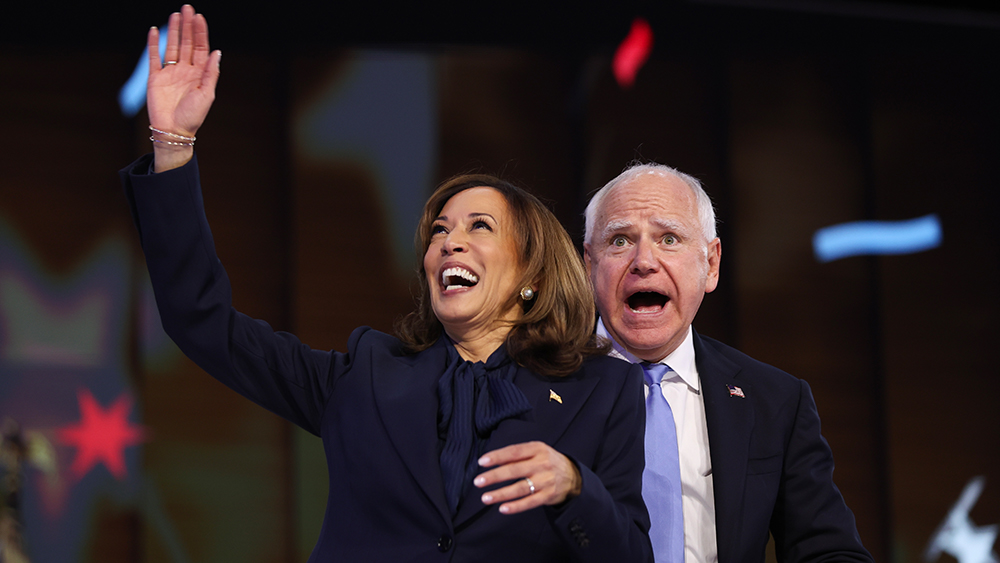
The economic plan involves having the Federal Trade Commission (FTC) use antitrust laws as leverage to control the price of food, which ultimately means controlling private business entirely.
Americans saw something similar back when Barack Obama had the federal government take control of Detroit's automobile industry. Kamala is doing the same kind of thing except instead of cars, she and Walz will decide how much your family's meals cost.
At issue right now is a proposed $26.4 billion merger between Kroger and Albertsons, two of America's largest grocery chains. The FTC does not want the two companies to merge because of the monopolistic implications, but Kamala has different ideas.
The claim is that local grocers stand no competitive chance against supercenters and club stores like Walmart and Costco. Allowing Kroger and Albertsons to merge would allow another super-retailer to emerge that some say would further drive down prices.
(Related: The other day, Kamala went on a word salad rant in which she described climate slavery as a form of "freedom" and "patriotism.")
How about we stop catering to corporations?
Kamala and Walz are receiving thunderous applauses from their supporters every time they talk about "price gouging" at the grocery store. Their campaign talking point is that food is much more expensive today compared to pre-Wuhan coronavirus (COVID-19) "pandemic" because of greedy executives.
This simplistic view ignores the Federal Reserve's money-printing sprees spanning many different presidential administrations. It ignores the inherent inflationary pressures imposed by fiat currency systems in general, which always need to grow and expand in order for the game to work.
There have been all kinds of other excuses thrown around as well including supply chain problems caused by the Russia-Ukraine war and Israel's war in Gaza, not to mention the ever-ballooning federal budget that is adding another $1 trillion to the national debt every 100 days.
The right-wing position on the Kroger-Albertsons merger scandal is that allowing it to go through will help consumers by bringing down food prices without price caps. There will be much less competition in the market as a result, but such is the nature of globalization and the trajectory it is taking the U.S.
We are told that the merger would generate $1 billion in higher wages and benefits for employees, as well as $1 billion in consumer benefits. By holding the merger hostage, Kamala can continue hawking her plan to communize the food retail industry.
"If the court accepts this scheme, or if a President Harris enacts her price plan, we will essentially no longer have a vibrantly competitive grocery market," warns Robert H. Bork Jr. from AmGreatness.
"What we will have will be a new government agency – the Department of Groceries."
Not all conservatives agree with Bork's position that allowing the merger to go through will be good for Americans, or that it is simply normal market mechanics at work.
"Sorry, but big business is not good for the consumer," one commenter wrote. "If you don't believe me, just look at the airlines."
"The bigger the corporation, the more it works with the government to suit their mutual needs, and works against the American people. Very confused why anyone would support this merger."
Another agreed, emphasizing that if the government would stop giving special tax breaks to large corporations at the expense of small businesses, not to mention stop and reverse the offshoring of America's manufacturing base, only then would true free market solutions emerge.
There are two months left until Kamala goes head-to-head with Trump at the polls. Keep up with the latest at Rigged.news.
Sources for this article include:
AmGreatness.com
NaturalNews.com
Source link

